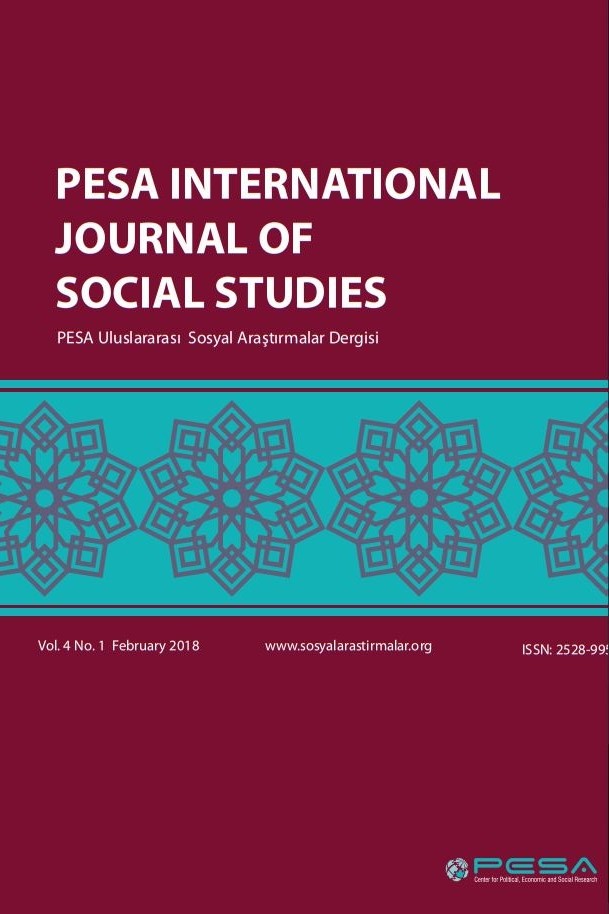Living at the Margins of Poverty: The Begging Poor in the Ottoman Empire (1550-1750)
begging
___
- Ahmed Refik, Hicri On /kinci Asirda Istanbul Hayatı (1100-1200) (Istanbul: Devlet Maatbasi, 1930), 194-195.
- ISSN: 2528-9950
- Yayın Aralığı: Yılda 3 Sayı
- Başlangıç: 2015
- Yayıncı: Politik Ekonomik ve Sosyal Araştırmalar Merkezi
Yerel Ulaşım Hizmetlerinde Hizmet Kalite Boyutlarının Değerlendirilmesi
Çiğdem ALİÇAVUŞOĞLU, Ahmet GÜRBÜZ
Aile İşletmeleri ve Kayırmacılık: Nitel Bir Araştırma
Fatih Ferhat ÇETİNKAYA, Emine ŞENER, Fatma KORKMAZ
Women’s Property Rights in Medieval Albania: Canons vs. City Statutes
Bir Filmin Hikâyesini Çözümlemek: “Raziye” (1990)
Günümüzün Önemli Küresel Sorunları Üzerine Bir Değerlendirme
Muhafazakâr Liberalizm ve Sosyal Politika Birleşimi Olarak Aile ve Sosyal Politikalar Bakanlığı
Türkiye’de Modernite Bağlamında Kent(li)leşme
Kırklareli İlinde Eğitim ve Sağlık Sektöründe İşkoliklik Üzerine Bir Araştırma
Beste Burcu KASAP, Serdar CANBAZ
Siyaset Bilimi ve Kamu Yönetimi Öğrencilerinin Çevresel Tutumlarına Yönelik Bir Araştırma
